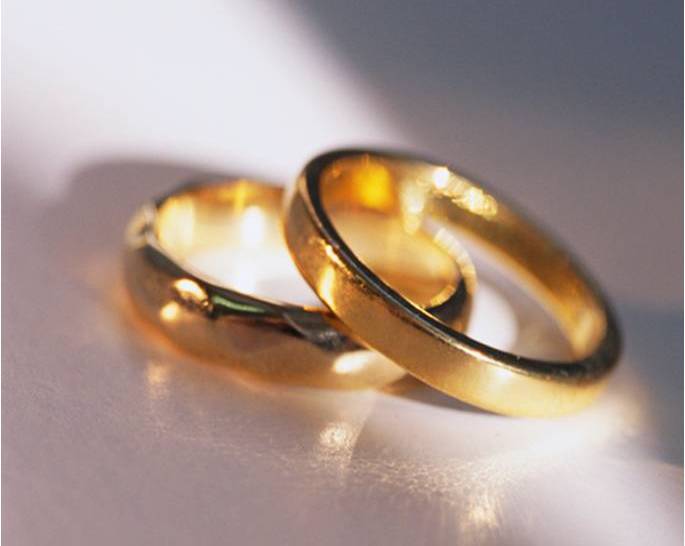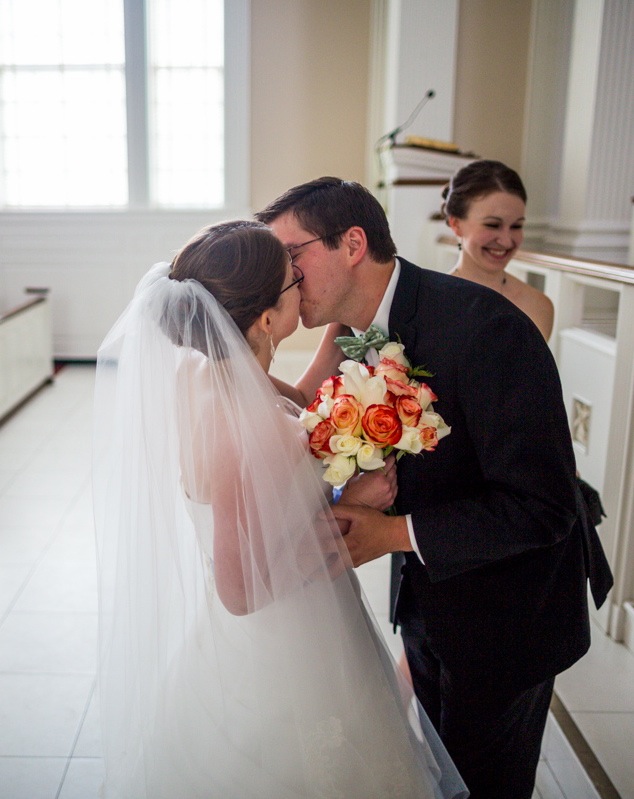It seems like everyone’s got something to say about marriage.
For a while, I thought it was just me. Having just tied the knot myself 2 months ago, marriage has been a recurring topic in recent conversations. “So how’s married life?” “What does your husband do?” “Are you all planning to have children?” The questions have no end, and some are more intrusive than others.
I’ve also wondered if it’s my current stage in life. My own wedding was one of six that I’ve been to in the last year. Everyone I know – and their sisters and cousins, for that matter – seems to be getting married. So perhaps I’m just more attuned to the topic when it comes up in the news, more emotionally invested in conversations about marriage because they touch on my personal experience.
But then that article started popping up all over my news feed. You’ve read it too, haven’t you? Seth Adam Smith’s oh-so-ironically titled, “Marriage Isn’t For You,” that has strummed the heartstrings of many and made others among us squirm uncomfortably. Is it the lack of mutuality and self-differentiation in the ideal that Smith lifts up for marriage (or even, as he says, “any true relationship of love”)?
Now, with two months under my belt, I have no interest in claiming to be an expert on marriage –I’m still in the earliest of learning stages. However, I do know that Smith’s over-simple article makes me uncomfortable because it runs contrary to most of what I’ve learned about human relationships from modern psychology, family systems theory, feminist critiques, pre-marital counseling, and my own life experience with relationships in general. I was immensely grateful to see responses start to emerge that, among other things, described marriage in terms of partnership and mutuality (Joel Mathis), and acknowledged that unilateral selflessness can become toxic just as quickly as unilateral selfishness can (Wayne Self). Sure, these takes on marriage may not translate as readily into a Death Cab for Cutie Song, but they do, I believe, translate into much healthier partnerships.
___________________________________________
As I’ve continued to reflect, I’ve realized that what most upsets me about Seth Adam Smith’s article isn’t that it’s bad psychology or bad marriage advice, but that it’s bad theology.
___________________________________________
But here’s what’s interesting. As I’ve continued to reflect, I’ve realized that what most upsets me about Smith’s article isn’t that it’s bad psychology or bad marriage advice, but that it’s bad theology. Behind the question of “Who is marriage for?” lies another question – “Why?” Why get married? I’d say that’s a pretty fair question for my generation in which 1 in 2 of our parents’ marriages ended in divorce.
Why get married in the first place? It’s the same question that Rev. Brian D. Ellison, Executive Director of the Covenant Network asked in a sermon he preached at the at the 2013 Covenant Conference, centered around the theme “Marriage Matters.” Ellison reflects on marriage and marriage equality in light of what one might argue is the least romantic passage in the Bible: I Corinthians 7. He takes a moment in his sermon to reflect on the flip-side of my question: Why are many couples who have the opportunity choosing not to get married?
I have no intention of making a case for marriage as the preferred state of being. On the contrary, I’d like to honestly ask the question of why so many of us are still trying it for ourselves?
I’ve been reflecting on this at all those weddings I’ve been to recently. At the beginning of most if not all mainline Protestant weddings, the minister officiating makes a statement about the purpose and meaning of marriage. In the Presbyterian Church (U.S.A.), it’s called the “Statement on the Gift of Marriage.” With my own marriage on my mind, I’ve heard this statement with new ears, and it’s offered me food for thought and reflection.
The statement gives four reasons for the gift of marriage – companionship, romantic and sexual love, social order, and covenant life. I think most of us go into marriage seeking the first three. What surprises us is the fourth.
First, our liturgy tells us tells us that God gave us marriage “so that husband and wife may help and comfort each other.” Perhaps this is what appeals to me about Mathis’ article. Marriage is portrayed as an exercise in mutuality, in partnership, rather than the relentless self sacrifice that Smith describes. Marriage, it seems, offers an antidote to the human condition of loneliness. “It is not good that we should be alone,” we think, and so we find ourselves a helper, a partner.
___________________________________________
We come to marriage seeking companionship, intimacy, security, and a whole host of other things. What we find in marriage is covenant life…We can no more own our marriage than we can own our baptism.
___________________________________________
Second, we hear that God gave us marriage “for the full expression of the love between a man and a woman.” I don’t think this requires much explanation, but I do want to point out the continued language of mutuality – “with affection and tenderness,” we say, both partners “freely give themselves to each other.” One need look no farther than the healthy list of romantic comedies, romance novels, or even the success of the porn industry to see our desire for romantic and sexual intimacy. Whether or not it usually comes with the mutuality described here is another question.
Third, it continues, marriage exists “for the well-being of human society, for the ordering of family life, and for the birth and nurture of children” – for the sake of the social order. This one is a little trickier for my generation to get our heads around. As we experiment with things like intentional community or encounter the significance of an extended or a non-biological family, we’ve come to see that the nuclear family is not the only way to order family life. And we see around us single parents, couples unable to have children, and couples who feel no need to add to an overpopulated world, which make us wonder about the wisdom behind trying to have children at all. We’re not so sure about this “marriage for the social order” thing. I’ll admit it’s the part of the liturgy that makes me most uncomfortable. And yet, I believe I speak for many when I say in marriage we imagine some semblance of security – even if, in the unpredictable road of relationships where there are no final guarantees, the reverse sometimes proves to be true.
We come to marriage seeking companionship, intimacy, security, and a whole host of other things. What we find in marriage is covenant life.
 The statement on the gift of marriage describes this covenant life in a variety of ways, for it goes beyond what our language can express. Marriage is described as a “holy mystery,” as a way in which two “become one, just as Christ is one with the church.” The statement says that in marriage, the couple is “called to a new way of life, created, ordered, and blessed by God.” Covenant life, a kind of calling where one is more than two.
The statement on the gift of marriage describes this covenant life in a variety of ways, for it goes beyond what our language can express. Marriage is described as a “holy mystery,” as a way in which two “become one, just as Christ is one with the church.” The statement says that in marriage, the couple is “called to a new way of life, created, ordered, and blessed by God.” Covenant life, a kind of calling where one is more than two.
To be sure, marriage is not the only place such covenant life is found. Covenant life—based upon promises made within God’s promise– can exist without marriage, but marriage cannot exist without covenant life.
“Who is marriage for, anyway?” The first three reasons for the gift of marriage – companionship, romantic and sexual love, and security – pertain primarily to the couple themselves and the larger family they may build. But covenant life is about something much bigger. It’s about the couple, their families, their whole community, about God. The covenant that each marriage carries on is God’s promise of blessing that is also a task opening us to serve in a bigger world.
___________________________________________
Why are so many of us inclined to think that this “holy mystery,” this “new way of life,” will look the way we expect it to look, will adhere to societal conventions?
___________________________________________
This is the answer that Ellison comes to as well. Citing the Westminster Shorter Catechism, Ellison concludes that the reason marriage matters – the reason why people get married in the first place – is to glorify God.
For some, that claim may ring true; for others, it may seem an antiquated sentiment, an unwelcome triangulation of the divine into a human relationship. And yet, as Christians, we have come to understand that covenant is something sacred – something of which we are not ultimately the owners. We can no more own our marriage than we can own our baptism. It is a holy mystery – my marriage is at the same time for myself, for my husband, for the children we may have one day, for the friends and family that surround us, and for the great cloud of witnesses that ultimately extends to God’s own self.
 So as the Presbyterian Church (U.S.A.) moves toward another General Assembly in which undoubtedly the definition of marriage as a “civil contract between a woman and a man” will be brought up for reconsideration, I pose this question: who am I to stand in the way of the covenant life to which another person is called? Why are so many of us inclined to think that this “holy mystery,” this “new way of life,” will look the way we expect it to look, will adhere to societal conventions? Do we not worship the God who told the exiles in Babylon and tells us today, “I am about to do a new thing; now it springs forth, – do you not perceive it?” Those whom God has joined together – who are we to separate?
So as the Presbyterian Church (U.S.A.) moves toward another General Assembly in which undoubtedly the definition of marriage as a “civil contract between a woman and a man” will be brought up for reconsideration, I pose this question: who am I to stand in the way of the covenant life to which another person is called? Why are so many of us inclined to think that this “holy mystery,” this “new way of life,” will look the way we expect it to look, will adhere to societal conventions? Do we not worship the God who told the exiles in Babylon and tells us today, “I am about to do a new thing; now it springs forth, – do you not perceive it?” Those whom God has joined together – who are we to separate?










